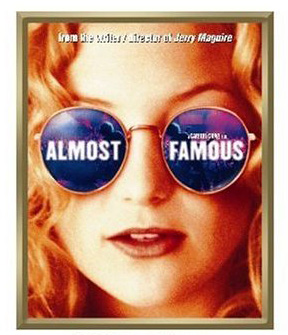Image source: Amazon.com
I love the idea nanocelebrity or micro-celebrity, where people are famous among a small group, but far from being a household name. Academic conferences are often a great place to find micro-celebrity. In the US, few academic cross over to the mainstream celebrity. Within a field, an academics can become rock stars, who have followers and detractors and can be controversial for their ideas. Their opinions can be widely cited and discussed in formal scholarship as well as on blogs and discussion groups.
At the recent Computational Social Sciences conference I attended and covered here, many of my social network theory rock star heroes were speaking, including Lada Adamic from the University of Michigan. Adamic has done some important and early work looking into the link structures of the blogosphere. In 2005, she “famously” looked at political blogs after the 2004 US Presidential Election, showing how most blue and red blog were far more likely to link to similarly minded blogs. Some of her visualizations made their way across the internet increasing her micro-celebrity status. The first time I met her (in the elevator at another conference) I didn’t even realize who she was. In the world of micro-celebrity, one’s ideas can be posted across the blogosphere, and can have the occasional pictureless quote in mainstream publications, adding to their street credibility among their small fan base.
Clive Thompson recently wrote a nice column on the subject and how Facebook status updates are like sending out press releases. He quotes Theresa Senft who is attributed with coming up with the idea micro-celebrity in the digital age, “People are using the same techniques employed on Madison Avenue to manage their personal lives.” In a networked society, information flows more freely and connections are more easily made. Groups of interested parties are form around people, through discussion forums and Yahoo Groups are Thompson sites. However, micro-celebrity can even be sliced into smaller facets.
Facebook allows anyone to be and operative as a micro-celebrity. It’s not uncommon for people who went to college in the Facebook era to have over 500 friends. On the occasional ego-check to see how many “friends” I have, I usually surprised to see how high the number is, because I don’t consider myself a power user. Digital micro-celebrity is replacing what was the traditions of the “small town.” The traditional “small town” with multi-generations living near by, if not the same street or house, fostered micro-celebrity. The only difference is that the micro-celebrities have a distributed network of fans, rather than local ones. Small groups (of say, less than 1000) can easily form, some of the forces which motivate the formation of these groups are worth looking to into, and will be covered in posts to come.




